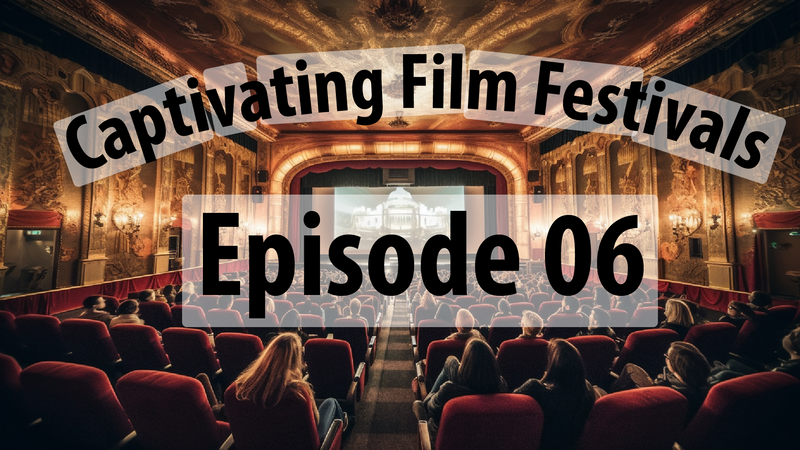Captivating Film Festivals: The Mirage of Intellectual Stimulation
Film festivals, those ephemeral gatherings of cinema enthusiasts, have long been heralded as bastions of intellectual and artistic exploration. Their allure lies in the promise of engaging with the finest cinematic creations, forging connections with like-minded individuals, and basking in the aura of cultural sophistication. However, it is time to critically examine the stunning facade of film festivals, as they often fail to deliver on their lofty promises of intellectual rigour and genuine artistic discourse. By scrutinizing the historical context, challenging the conventional wisdom, and unmasking the commercial underpinnings, we can expose the true nature of film festivals and the limitations they impose on genuine intellectual engagement.
The Elitist Charade:
Film festivals, with their red carpets, exclusive premieres, and glamorous parties, often become breeding grounds for elitism disguised as artistic appreciation. While proclaiming to celebrate the democratization of cinema, these events inadvertently perpetuate a hierarchical system favouring the privileged few. Shrouded in secrecy, the selection process is susceptible to biases, subjectivity, and hidden agendas. As a result, films that cater to the whims of influential curators or conform to prevailing political narratives are elevated, while lesser-known, daring works languish in obscurity. Moreover, this curated elitism reinforces a narrow definition of "important" cinema, stifling diverse voices and limiting the potential for genuine intellectual exploration.

The Dumbing Down of Discourse:
Despite their proclaimed dedication to intellectual stimulation, film festivals often prioritize entertainment value over critical engagement. The mainstream appeal becomes the benchmark for success, leading to the proliferation of superficial narratives and formulaic storytelling. The pursuit of commercial viability compromises the artistic integrity of many films, as directors are coerced into conforming to market demands. Intellectual rigour is overshadowed by the quest for box office success, resulting in an industry prioritizing spectacle over substance and sensation over reflection. By succumbing to this trend, film festivals reinforce the notion that accessibility and commercial success are more important than intellectual rigour and artistic authenticity.
The Commodified Experience:
Film festivals, despite their purported celebration of art, are not immune to the clutches of consumerism. Corporate sponsorships and marketing campaigns infiltrate every aspect of these events, commodifying the film-going experience. The focus shifts from genuine appreciation and critical analysis to brand promotion and commercial transactions. The proliferation of product placements, sponsored events, and celebrity endorsements further diminishes the intellectual value of these gatherings. By transforming film festivals into a marketplace of consumer goods, the core purpose of these events becomes distorted, reducing them to nothing more than spectacles of commercial exploitation.
A Historical Perspective:
To understand the shortcomings of contemporary film festivals, we must examine their historical roots. The early days of film, when the medium was still finding its artistic voice, witnessed the emergence of film societies and collectives. These grassroots movements sought to foster community and intellectual exchange, providing a platform for marginalized voices and alternative cinematic visions. However, as film festivals evolved into high-profile events, they lost touch with their revolutionary origins. The allure of glamour, marketability, and celebrity culture overshadowed the genuine pursuit of intellectual rigour. As a result, film festivals became more concerned with reinforcing established hierarchies rather than challenging them.
The Way Forward:
A reevaluation of their purpose and structure is necessary to reclaim the lost promise of intellectual engagement within film festivals. The selection process should be transparent, objective, and representative of diverse voices and perspectives. Embracing unconventional and challenging works should be encouraged rather than conforming to market demands. Film festivals should strive to foster an environment that promotes critical discourse, inviting audiences to engage with the ideas and themes presented on screen. Film festivals can catalyze genuine intellectual exploration by eschewing the trappings of commercialism and elitism, stimulating thought and provoking meaningful conversations.
Conclusion:
Once beacons of artistic expression and intellectual stimulation, film festivals have strayed from their original purpose. Their preoccupation with commercial success, elitism, and superficiality has eroded the potential for genuine engagement and critical discourse. Therefore, it is imperative to challenge the conventional wisdom surrounding these events, unmask their commercial underpinnings, and demand a return to their grassroots origins. Film festivals can only reclaim their position as vibrant spaces for artistic exploration and genuine intellectual exchange by embracing a more inclusive and intellectually rigorous approach. Let us not settle for the mirage of intellectual stimulation but strive for the transformative power of cinema to challenge, inspire, and enlighten.


